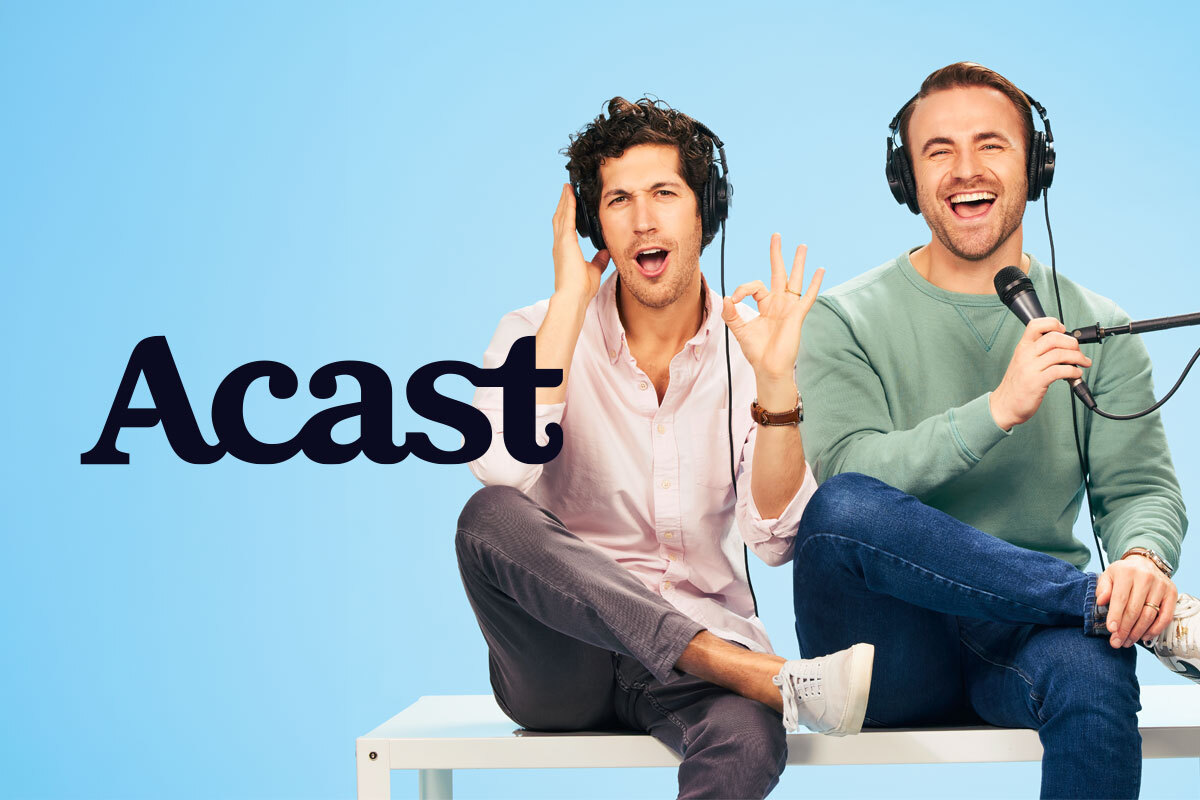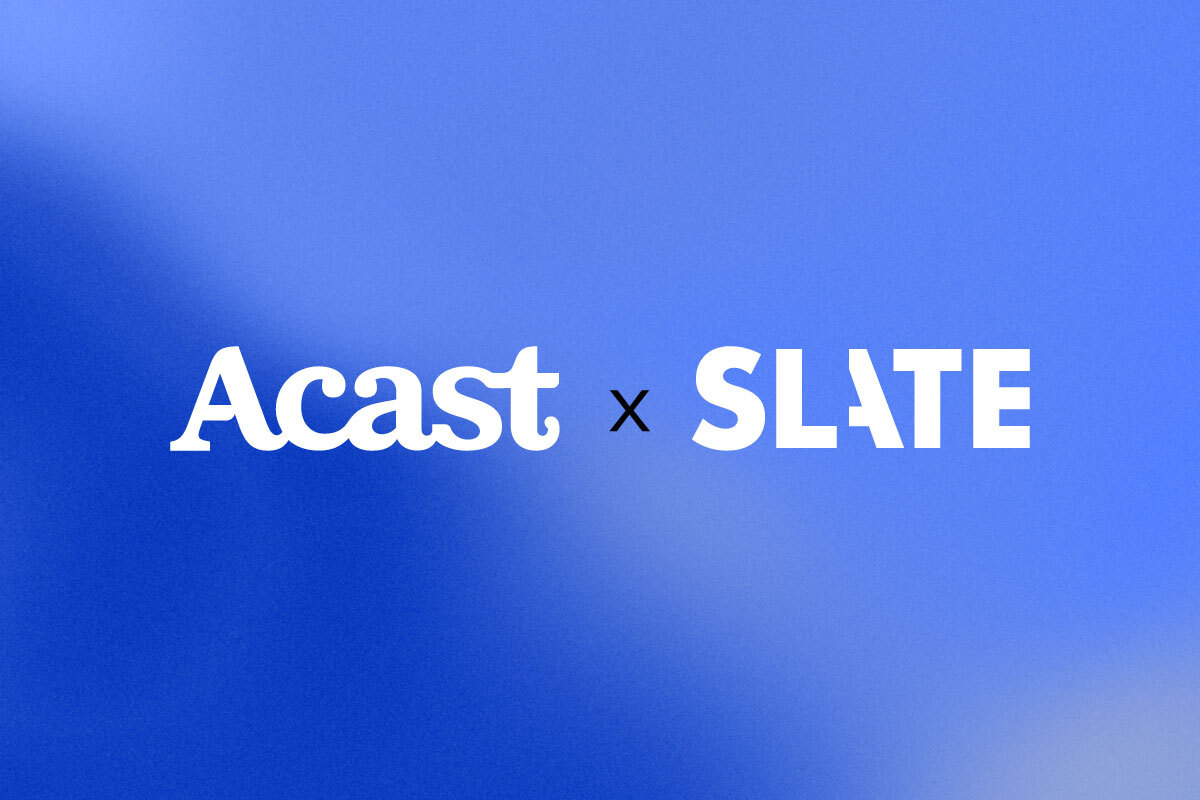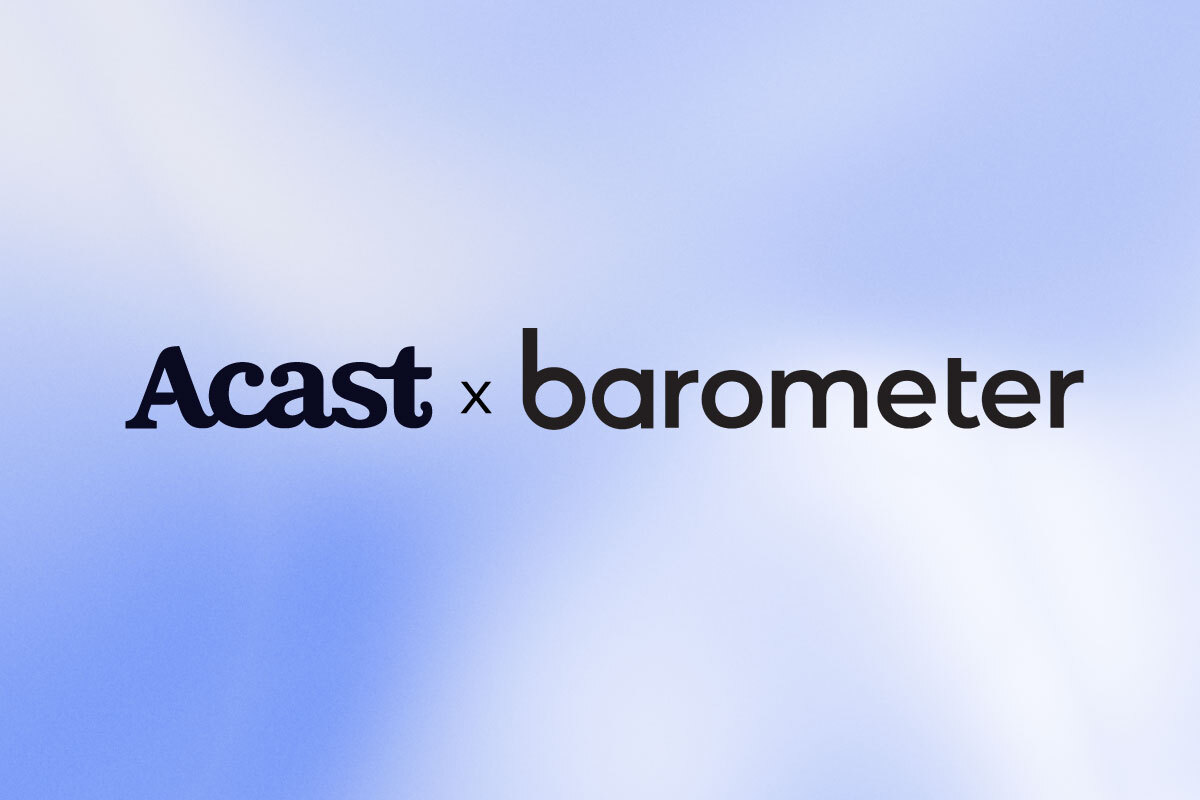Why the brand-safe nature of podcasting is perfect for trustworthy, unfiltered conversations

Brand safety and suitability are at the heart of every successful advertising campaign. The most rewarding campaigns leave the consumer without questions about values or intent and associate your brand with trustworthy content.
The results of a new data survey from Acast (in collaboration with data platform Walr) show that podcasting is perceived as the most brand-safe advertising platform, with over half (52%) of listeners stating that they are not concerned with the safety of podcast content. Furthermore, listeners say that the podcasting format is well-regulated to ensure that the content they listen to is accurate, trustworthy and safe - with seven in 10 claiming responsibility falls on podcasters and their producers to maintain this trust.
What Is Brand Safety?
What does brand safety mean? The Internet Advertising Bureau (IAB) defines brand safety as keeping a brand’s reputation safe when advertising online. In real terms, this means avoiding placing ads next to inappropriate content.
Compared to other platforms, podcasts are perceived as the most brand-safe (83% of listeners agree), with radio (81%) following shortly behind. These results highlight that audio platforms are seen as more brand safe than visual and social platforms, and it is due to brands and agencies being able to align advertising alongside contextually-relevant podcast genres and content.
This trust in podcasting can allow for brands that are considered taboo (e.g. Sex toy brands, CBD brands etc.) to consider taking advantage of the trusted podcast platform. Using host-read ads, branded segments or even whole episodes, ‘taboo’ brands can tap into those unfiltered conversations on podcasts that are often unavailable or allowed on other platforms.
The Importance of Using Relevant Ads
With listeners placing trust in podcast advertising, it’s no surprise that over half (51%) would decide against purchasing a brand if it was advertised alongside inappropriate content. Inappropriate doesn’t just mean taboo or ‘adult-friendly’ - it can also refer to the suitability of advertising against specific topics. For example, if meat advertising appears on a vegan podcast. Again, this highlights the importance of contextually-relevant advertising.
So how can podcasts help brands remain trustworthy, with messaging and placement replicating their audience’s core value? Dynamic insertion and Acast’s conversational targeting tools make it easy for brands to control how and when their ads appear within podcasts and allow advertisers to decide where their messaging appears. This trust and safety are critical to delivering key messages, engaging with consumers and building a community around your brand. Podcasting is the safest place for it.
Brand safety and suitability are at the heart of every successful advertising campaign. The most rewarding campaigns leave the consumer without questions about values or intent and associate your brand with trustworthy content.
The results of a new data survey from Acast (in collaboration with data platform Walr) show that podcasting is perceived as the most brand-safe advertising platform, with over half (52%) of listeners stating that they are not concerned with the safety of podcast content. Furthermore, listeners say that the podcasting format is well-regulated to ensure that the content they listen to is accurate, trustworthy and safe - with seven in 10 claiming responsibility falls on podcasters and their producers to maintain this trust.
What Is Brand Safety?
What does brand safety mean? The Internet Advertising Bureau (IAB) defines brand safety as keeping a brand’s reputation safe when advertising online. In real terms, this means avoiding placing ads next to inappropriate content.
Compared to other platforms, podcasts are perceived as the most brand-safe (83% of listeners agree), with radio (81%) following shortly behind. These results highlight that audio platforms are seen as more brand safe than visual and social platforms, and it is due to brands and agencies being able to align advertising alongside contextually-relevant podcast genres and content.
This trust in podcasting can allow for brands that are considered taboo (e.g. Sex toy brands, CBD brands etc.) to consider taking advantage of the trusted podcast platform. Using host-read ads, branded segments or even whole episodes, ‘taboo’ brands can tap into those unfiltered conversations on podcasts that are often unavailable or allowed on other platforms.
The Importance of Using Relevant Ads
With listeners placing trust in podcast advertising, it’s no surprise that over half (51%) would decide against purchasing a brand if it was advertised alongside inappropriate content. Inappropriate doesn’t just mean taboo or ‘adult-friendly’ - it can also refer to the suitability of advertising against specific topics. For example, if meat advertising appears on a vegan podcast. Again, this highlights the importance of contextually-relevant advertising.
So how can podcasts help brands remain trustworthy, with messaging and placement replicating their audience’s core value? Dynamic insertion and Acast’s conversational targeting tools make it easy for brands to control how and when their ads appear within podcasts and allow advertisers to decide where their messaging appears. This trust and safety are critical to delivering key messages, engaging with consumers and building a community around your brand. Podcasting is the safest place for it.





